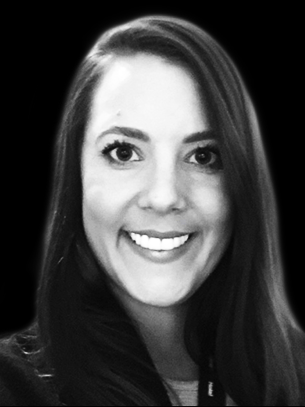
The Director of Global Marketing Procurement Creative & Production at Adidas, Rachel Wentzel, keeps busy transforming marketing procurement at Adidas while simultaneously launching her own consultancy to enable brands reach their full potential. With over 15 years of procurement experience, Rachel was kind enough to sit down with Brandingmag to talk about how procurement can become marketing’s most valuable partner.
Bm: What are the first three things you would focus on if you had to build a brand from scratch?
RW: I love this question. To begin with, I would advise entrepreneurs not to focus on building their brand. Rather, I would encourage them to focus on understanding the consumer’s needs in order to develop a unique and purposeful product. Then, create a bespoke end-to-end experience to highlight the benefits and value of your product. Finally, craft a meaningful and authentic story to meet your consumers in their journey.
Think product and experience first, and storytelling later, but make sure storytelling is backed up by storydoing as well. That’s how you nurture your authenticity.
Bm: In the past decade, and even more so in the last couple of years, brands have made the transition to a completely new digital commerce era. Where do you see it going from here?
RW: The emergence of new technologies will always force brands to pivot and think about where they must be to engage with their consumers. It is certainly not easy to predict what comes next but we are all seeing some key trends that won’t go away: the increased use of AI and Machine Learning to provide a personalized shopping experience for consumers, for instance. Virtual try-on will become increasingly important and will allow consumers to experience the brand and product differently. The expansion of the Internet of Things (IoT) will also lead to new products and services. These trends are likely to lead to new forms of digital commerce that are more convenient, personalized and efficient.
Bm: How can a diverse global brand deliver consistency in everything it does?
 RW: Recognizing a brand, regardless of its geographical location or communication channel, is a large feat. This can be achieved through consistency in colors, visuals and sound. That’s not to say that a brand must show up the exact same way everywhere.
RW: Recognizing a brand, regardless of its geographical location or communication channel, is a large feat. This can be achieved through consistency in colors, visuals and sound. That’s not to say that a brand must show up the exact same way everywhere.
Especially, given consumer expectations do vary depending on where they are in the world – so customization is necessary. For instance, using consistent acoustic waves is a simple yet effective way to deliver consistency in a messaging that is both recognizable and unique to your brand.
Bm: On this note, sonic branding has been more and more on the radar of global brands. What’s your take on that?
RW: Music is one of the most powerful tools we have to engage with our consumers. I still think that brands can do better when it comes to that – putting more emphasis on sound is paramount. If you think about it, it is nowhere close to the effort and attention put on capturing key visuals. Brands that prioritize developing their sonic branding will for sure have a competitive advantage, especially if they develop it to enhance their brand messaging in line with their purpose.
Bm: Brands are also part of culture. How do you know when a brand is actually being authentic about their message, and when not?
RW: Don’t just think of a single message or moment, rather determine authenticity through varying experiences you’ve had. Do they show up consistently or does their message seem to fluctuate or change? Are they transparent about their values and beliefs or is their message vague and misleading? Is the brand walking the walk or just talking the talk? These are some of the questions I usually consider. Ultimately, it is up to each individual to determine based on their own perspective and experiences.
Bm: What is ethical procurement, and does Adidas have a different standard than you do/did in your other work?
RW: Procurement is a function of the company that focuses on obtaining the best value for money and ultimately meeting the needs of the organization efficiently and effectively. To me, ethical procurement is ensuring the business is operating in an appropriate and fair manner. It is our code of conduct and the framework by which we behave around topics like social responsibility, DEI, and sustainability. We must always work with integrity and impartiality. Particularly on sourcing activities, we must always treat agencies in the same way and provide them with the same information to prevent unfair advantage for one over another. At Adidas, our processes are clearly defined so we avoid any unethical behavior within the organization.
Bm: Any tips for brands that want to keep procurement ethical?
RW: To ensure ethical practices I think of the Newspaper Test. It is a very simple technique that I like to explain as follows: do you want it to show up on the front page of the news? If you answer yes, go for it. If you answer no, don’t do it. This applies to everyone, not just procurement.
Bm: What branding lesson has your favorite song taught you?
RW: Songs are powerful and can evoke all types of emotions. My favorite songs have a clear narrative that connects on an emotional level. For brands, it is their storytelling that allows them to have the same emotional impact. Repetition in a song’s melody is one of the ways a song can be easily remembered. Similarly for brands, consistency and repetition allows for a lasting impression. Lastly, music that stands out has a unique style or an artist with a unique voice. It is by developing a unique key visual, sound and personality that brands can ultimately stand out and differentiate themselves from the competition.
Cover image source: Flip Baotic
